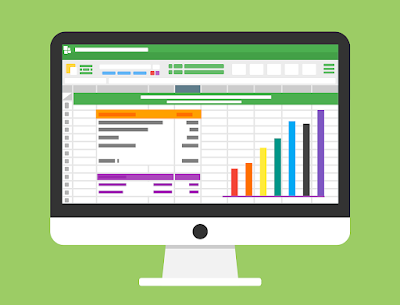In the fast-paced and ever-changing world of finance, understanding the secrets behind a financial report audit is paramount for organizations striving for transparency and accountability. Auditing financial reports involves a systematic examination of an entity's financial statements to ensure accuracy, integrity, and compliance with regulations.
This comprehensive process encompasses several critical steps that illuminate the inner workings of an organization's financial health. From gathering and reviewing financial data to assessing internal controls and conducting substantive procedures, each step plays a vital role in uncovering any discrepancies and providing a true reflection of a company's financial position.
In this article, we delve into the intricacies of a financial report audit, shedding light on the essential steps that contribute to comprehensive financial transparency. Whether you're a business owner, investor, or finance professional, understanding these critical stages will empower you to make informed decisions based on reliable financial information.
Embark on a journey to unravel the mysteries behind financial report audits as we explore the significance of each step and highlight the key considerations that ensure accuracy, compliance, and trust in the financial reporting process.
Financial transparency is the cornerstone of a healthy and sustainable financial ecosystem. It ensures that organizations are held accountable for their financial actions and provides investors and stakeholders with the confidence they need to make sound decisions. Transparency allows for a clear understanding of an organization's financial position, performance, and potential risks. It also establishes trust between businesses, investors, and regulatory bodies. Without transparency, the financial landscape would be shrouded in uncertainty and susceptible to fraud and financial mismanagement.
In the context of financial report audits, transparency is achieved through a rigorous examination of an organization's financial statements by independent auditors. These audits serve as a safeguard against financial misconduct, providing stakeholders with an unbiased assessment of a company's financial health. By understanding the importance of financial transparency, organizations can take the necessary steps to establish robust internal control systems and ensure accurate and reliable financial reporting.
The role of auditors in financial report audits is crucial. Auditors are professionals with extensive knowledge of accounting principles and auditing standards. They are responsible for examining an organization's financial statements and expressing an opinion on their fairness and compliance with applicable regulations. Auditors play a vital role in enhancing financial transparency by providing an independent and objective assessment of an organization's financial health.
To achieve comprehensive financial transparency, financial report audits follow a systematic and well-defined process. The key steps in this process are as follows:
Understanding the Audit Planning Phase
The audit planning phase sets the foundation for a successful financial report audit. During this stage, auditors gain a deep understanding of the organization's business, industry, and regulatory environment. They assess the risks associated with the audit and develop an audit plan tailored to the organization's specific circumstances. The planning phase also involves establishing clear communication channels with the organization's management and key personnel. This open dialogue ensures that auditors have access to all relevant information and can plan their audit procedures effectively.
Conducting Risk Assessment and Internal Control Evaluation
Risk assessment is a critical step in the financial report audit process. Auditors identify and assess the risks that may impact the accuracy and reliability of an organization's financial statements. They evaluate the effectiveness of the organization's internal controls in mitigating these risks and preventing fraud. This evaluation involves examining the control environment, assessing the design and implementation of control activities, and testing the operating effectiveness of these controls. By understanding and evaluating the internal control system, auditors can design appropriate audit procedures to address the identified risks.
Performing Substantive Testing and Analytical Procedures
Substantive testing involves detailed examination of the organization's financial transactions and balances. Auditors select samples from various financial statement items and perform procedures to obtain sufficient and appropriate audit evidence. These procedures include testing the accuracy and completeness of transactions, verifying the existence of assets and liabilities, and assessing the valuation and presentation of financial statement items. In addition to substantive testing, auditors also perform analytical procedures to identify any unusual or unexpected trends or relationships in the financial data. These procedures provide further assurance regarding the accuracy and completeness of the financial statements.
Reporting and Communicating Audit Findings
After completing the audit procedures, auditors compile their findings and express their opinion on the fairness of the organization's financial statements. The audit report is a formal document that communicates the results of the audit to the organization's management, shareholders, and other stakeholders. The report includes the auditor's opinion on the financial statements, any identified weaknesses in internal controls, and recommendations for improvement. Clear and effective communication of audit findings is essential for maintaining transparency and ensuring that stakeholders have a complete understanding of the organization's financial position.
To illustrate the practical application of financial report audits, let's consider a few real-life examples:
Example 1: XYZ Corporation
XYZ Corporation, a multinational conglomerate, undergoes an annual financial report audit to ensure transparency and compliance with international accounting standards. The auditors follow the key steps outlined earlier, starting with the audit planning phase. They gain an understanding of XYZ Corporation's diverse business operations, assess the risks associated with the company's global footprint, and develop an audit plan that addresses these risks.
During the risk assessment and internal control evaluation phase, the auditors thoroughly examine XYZ Corporation's internal controls, particularly in areas prone to fraud and financial misstatements. They assess the effectiveness of XYZ Corporation's control environment, including its corporate governance structure, internal audit function, and ethical policies.
Performing substantive testing and analytical procedures, the auditors select samples of financial transactions and balances for detailed examination. They verify the accuracy and completeness of XYZ Corporation's revenue recognition, inventory valuation, and expense allocation processes. Additionally, they perform analytical procedures to identify any unusual trends in XYZ Corporation's financial data.
Finally, the auditors compile their findings and issue an audit report that provides an opinion on the fairness of XYZ Corporation's financial statements. They communicate any identified weaknesses in internal controls and make recommendations for improvement. This comprehensive audit process ensures that XYZ Corporation's financial reports are accurate, reliable, and transparent, enhancing stakeholders' trust in the organization.
Example 2: ABC Nonprofit Organization
Financial report audits are not limited to for-profit corporations. Nonprofit organizations, such as ABC, also undergo audit processes to ensure transparency and accountability. In this case, the auditors follow similar steps, starting with the audit planning phase. They gain an understanding of ABC's mission, programs, and funding sources, and assess the risks associated with the organization's operations.
During the risk assessment and internal control evaluation phase, the auditors focus on ABC's compliance with legal and regulatory requirements for nonprofit organizations. They evaluate the effectiveness of ABC's internal controls in safeguarding the organization's assets and ensuring proper use of donor funds. This evaluation includes reviewing ABC's financial policies and procedures, assessing the segregation of duties, and testing the organization's compliance with grant and contract requirements.
Performing substantive testing and analytical procedures, the auditors select samples of ABC's financial transactions and balances. They verify the accuracy and completeness of ABC's revenue and expense recognition processes, ensuring that the organization's financial statements fairly represent its financial activities.
The auditors compile their findings and issue an audit report that provides an opinion on the fairness of ABC's financial statements. They communicate any identified weaknesses in internal controls and make recommendations for improvement. This audit process enhances transparency and accountability in ABC's financial reporting, instilling confidence in donors and stakeholders.
In conclusion, understanding the secrets behind a financial report audit is crucial for organizations and stakeholders alike. Financial transparency is the bedrock of a healthy and sustainable financial ecosystem, fostering trust, accountability, and informed decision-making. The key steps in a financial report audit process, including audit planning, risk assessment, substantive testing, and reporting, contribute to comprehensive financial transparency by ensuring accurate and reliable financial reporting.
By unraveling the mysteries behind financial report audits, organizations can take proactive measures to establish robust internal control systems and comply with regulations. Investors and stakeholders can make informed decisions based on reliable financial information, mitigating financial risks and maximizing opportunities.
In a world where financial transparency is increasingly valued, a comprehensive financial report audit serves as a beacon of trust and reliability. Embracing this process empowers organizations to build stronger relationships with stakeholders and achieve sustainable growth in an ever-evolving financial landscape.
The audit planning phase is the foundation of a successful financial report audit. It involves understanding the organization's business, its financial reporting process, and the risks inherent in its operations. During this phase, auditors gather information about the entity's industry, competitors, and regulatory environment. This knowledge helps auditors tailor their approach and identify specific areas that require closer examination.
Additionally, auditors assess the entity's internal controls, including policies and procedures established by management to safeguard assets, maintain accurate financial records, and prevent fraud. Evaluating internal controls is crucial as it provides auditors with insights into the reliability of the organization's financial reporting process. By identifying control weaknesses or deficiencies, auditors can design appropriate audit procedures to address these risks effectively.
The audit planning phase is also an opportunity for auditors to establish open and transparent communication with the organization's management and other key stakeholders. This collaboration ensures that auditors have a comprehensive understanding of the entity's operations and enables them to address any concerns or questions that may arise throughout the audit process. Through effective planning, auditors can lay the groundwork for a thorough and efficient financial report audit.
Once the audit planning phase is complete, auditors move on to the risk assessment and internal control evaluation stage. This step involves identifying and assessing the risks that may affect the accuracy and reliability of the financial statements. By understanding these risks, auditors can determine the appropriate level of audit procedures necessary to address them effectively.
During the risk assessment process, auditors consider both inherent risk and control risk. Inherent risk refers to the susceptibility of the financial statements to material misstatement due to factors such as the nature of the industry or significant accounting estimates. Control risk, on the other hand, relates to the effectiveness of the entity's internal controls in preventing or detecting material misstatements.
To evaluate the effectiveness of internal controls, auditors perform tests of controls. These tests examine the design and operating effectiveness of the entity's control activities, such as segregation of duties, authorization procedures, and physical safeguards. By conducting these tests, auditors gain assurance that the internal controls are operating as intended and can rely on them to reduce the assessed control risk.
The risk assessment and internal control evaluation stage require auditors to exercise professional judgment and skepticism. It involves analyzing the entity's operations, financial statements, and supporting documentation to identify any potential risks or control deficiencies. By thoroughly assessing these risks, auditors can develop an audit strategy that focuses on areas of higher risk and ensures the accuracy and reliability of the financial statements.
Once the risk assessment and internal control evaluation stage is complete, auditors proceed to perform substantive testing and analytical procedures. Substantive testing involves obtaining audit evidence to support the amounts and disclosures in the financial statements. It includes detailed testing of transactions, account balances, and disclosures to ensure their accuracy and completeness.
Auditors use various methods to perform substantive testing, such as sampling, confirmation of balances with third parties, and analysis of supporting documentation. These procedures help auditors gather sufficient and appropriate evidence to provide reasonable assurance that the financial statements are free from material misstatement.
In addition to substantive testing, auditors also utilize analytical procedures to evaluate the reasonableness of financial information. Analytical procedures involve comparing financial data to industry benchmarks, prior periods, and other relevant information. By conducting these procedures, auditors can identify any unusual fluctuations or trends that may indicate potential misstatements or errors in the financial statements.
The performance of substantive testing and analytical procedures requires auditors to possess strong analytical skills, attention to detail, and a deep understanding of the industry and entity being audited. Through these procedures, auditors can obtain the necessary evidence to support their opinion on the fairness and accuracy of the financial statements.
After completing the substantive testing and analytical procedures, auditors enter the reporting and communication phase. This stage involves summarizing the audit findings and communicating them to management, the board of directors, and other stakeholders. The auditor's report is a crucial component of this phase, as it provides an independent opinion on the fairness of the financial statements.
The auditor's report typically consists of several sections, including an introductory paragraph, a description of the responsibilities of management and auditors, the auditor's opinion on the financial statements, and any additional explanatory paragraphs or emphasis of matter paragraphs. The report is prepared in accordance with the applicable auditing standards and regulations.
In addition to the auditor's report, auditors also communicate their findings and recommendations to management and the board of directors. This communication helps stakeholders understand the audit results, any significant issues identified, and the actions necessary to address them. Through effective communication, auditors ensure that their findings are understood and can be acted upon to enhance financial transparency and accountability.
To provide a practical understanding of financial report audits, let's explore a few real-life examples. In the case of a publicly-traded company, the auditors' report is an essential document that investors rely on to make informed investment decisions. The report informs investors about the accuracy and reliability of the company's financial statements, giving them confidence in the information disclosed.
For a nonprofit organization, a financial report audit helps demonstrate transparency and accountability to donors and other stakeholders. By undergoing an independent audit, nonprofits can assure their supporters that their funds are being used appropriately and in line with their mission.
In the banking industry, financial report audits play a critical role in ensuring the stability and integrity of the financial system. Auditors assess banks' compliance with regulatory requirements, the adequacy of their capital reserves, and the accuracy of their financial statements. These audits help maintain public confidence in the banking sector and protect the interests of depositors and investors.











